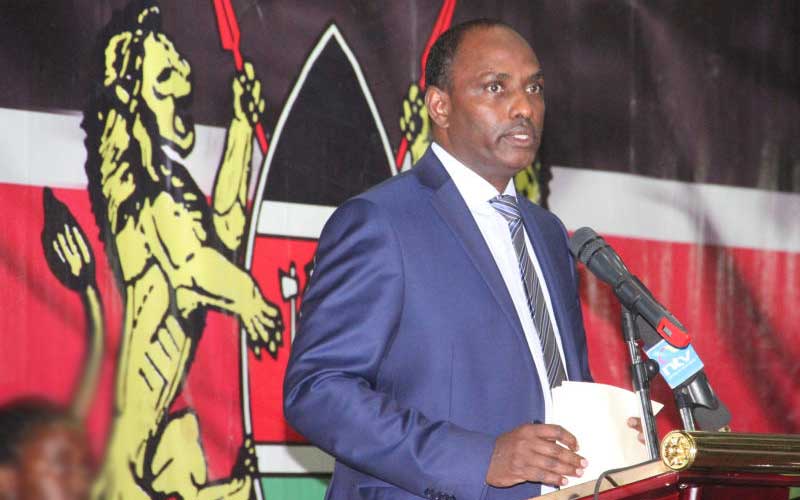×
The Standard e-Paper
Stay Informed, Even Offline

Treasury Cabinet Secretary Ukur Yatani. His task is to balance the bigger budget against shrinking revenues as businesses shut down, workers lose jobs or face pay cuts and exports decline. [File]
The coronavirus pandemic sent the Treasury mandarins back to the drawing board, abandoning austerity to cushion the economy, which is expected to slow down to the lowest point since the 2007 post-election violence.